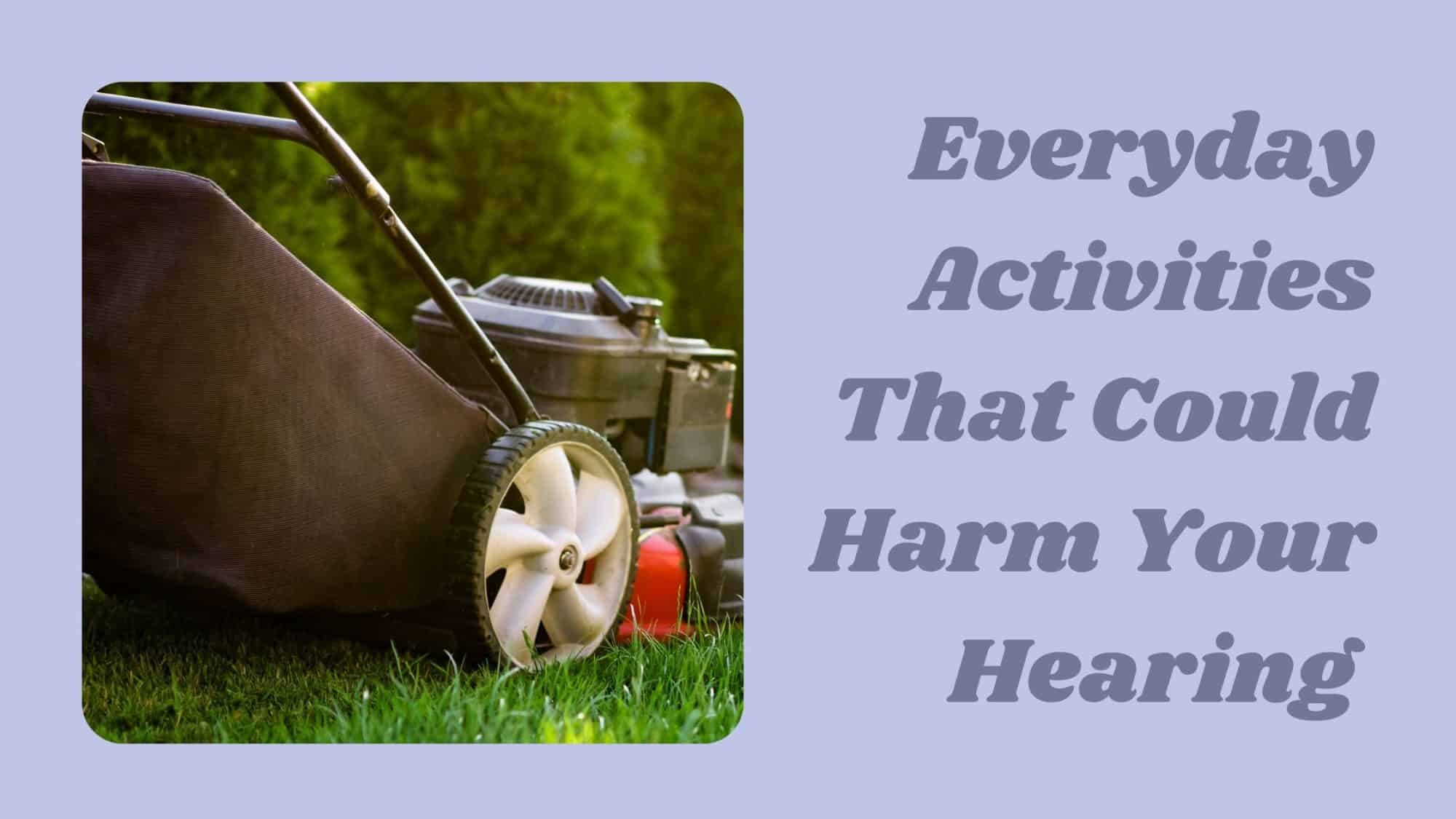- Volunteering for Hearing Health Causes - May 27, 2025
- Questions to Ask During Your Hearing Health Appointment - May 16, 2025
- Exploring Alternative Therapies for Hearing Loss - May 6, 2025
Our ears are exposed to loud noises every day. But many of us don’t think twice about the daily activities that could affect our hearing. If you have noisy hobbies, work on a noisy job site, or have experienced tinnitus when leaving a concert, your hearing health could be at risk. Find out more about the everyday sounds that can harm your hearing.
Daily Noise
We’re surrounded by loud noises all the time. Heavy traffic on the commute to work, the squealing brakes of the subway car, our children’s school hallways, and our workplaces can all be very noisy. Leaf blowers, lawnmowers, and even kitchen appliances can all put a lot of strain on our eardrums.
Everyday Activities That Harm Your Hearing
Besides the daily noise, some of your everyday activities could be taking a toll on your hearing. Sports events and music concerts are notoriously loud. For example, if you’re sitting near a speaker, you may leave the venue with a ringing or buzzing sound in your ears. This tinnitus is a sign that your ears are in danger. Other noisy activities include:
- Driving recreational vehicles or off-road vehicles
- Riding a motorbike
- Taking your boat out for a spin
- Playing a musical instrument in a band
- Spending the evening at a crowded bar
- Hunting or spending the afternoon at the shooting range
- Listening to music with earbuds, that can flood your eardrums with extremely loud noise
All these everyday activities could be harming your hearing, and this could be happening a lot faster than you realize.
What is Noise-Induced Hearing Loss?
When you’re exposed to all these excessively loud sounds, you increase your risk of noise-induced hearing loss. Noise can damage your hearing slowly. Over several years of daily exposure to moderately loud noise, the cells in your ear can eventually start to show signs of damage, and you will experience hearing loss.
However, hearing loss can also happen in just a few minutes. If you’re exposed to one extremely loud noise or attend an excessively loud concert, you could experience hearing loss in just one night.
What Happens in Your Brain
If you have hearing loss, your brain changes to keep up with the changes in your hearing abilities. At first, you’ll use a lot of brainpower straining to hear. You’ll spend all your energy trying to make out what’s said during conversations, and try to guess at the sounds you missed. This doesn’t leave you with a lot of headspace for other cognitive tasks like forming memories or focusing at work.
After a while, some cells in the auditory regions of the brain can be damaged, die, or get reassigned to other tasks. These changes can increase your risk of cognitive decline, and increase your risk of developing dementia.
Hearing Loss Leads to Isolation
If you’ve been living with hearing loss for a while, you may be tired of straining to catch what’s being said. You may be feeling isolated and cut off from your family and friends. Those with untreated hearing loss are more likely to feel overwhelmed or uncomfortable during conversations and have a higher risk of becoming lonely or isolated. Have you been missing out on the everyday activities you used to love?
Wearing Hearing Protection
Do you do any of these everyday activities that could harm your hearing? Noise-induced hearing loss is preventable! With a few simple changes, you can protect your hearing health.
- Start by turning down the volume. If you’re at home, at a friend’s house, or listening with earbuds, turn down the volume. You’ll damage your hearing by listening to music or the TV with the volume on high.
- Next, remove yourself from the noise. If you can work in a quieter part of the job site, or you can sit further away from the speakers at the next game, do it.
- Finally, wear hearing protection! When you can’t get away from the noise, wearing hearing protection can prevent hearing loss.
Treating Hearing Loss
If you have hearing loss, the best thing you can do for your hearing health and your overall health is to treat your hearing loss. Call us to book a hearing test and find out more about your treatment options. Wearing hearing aids can even prevent further noise-induced hearing loss and help you protect your ears.

